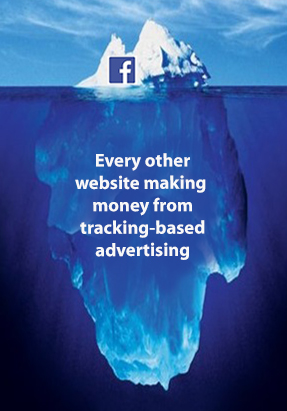I came on an interesting series of tweets on Twitter by Yonatan Zunger (@yonatanzunger) triggered by reading the revelations in the Observer and New York Times about the way stolen Facebook data had been weaponised for use in the US presidential election by a rogue data-scientist and an unscrupulous company. A key element in was a wide-ranging and astonishingly frank interview given to Observer journalist Carole Cadwalladr by Chris Wylie, the programmer who wrote the code used to exploit the data. I’ve assembled Zunger’s tweetstream in chronological order:
I didn’t come up in computer science; I used to be a physicist. That transition gives me a rather specific perspective on this situation: that computer science is a field which hasn’t yet encountered consequences.
Chemistry had two reckonings, in the late 19th and early 20th centuries: first with dynamite, and then with chemical weapons. Physics had its reckoning with the Bomb. These events completely changed the fields, and the way people come up in them.
Before then, both fields were dominated by hope: the ways that science could be used to make the world a fundamentally better place. New dyes, new materials, new sources of energy, new modes of transport; everyone could see the beauty.
Afterwards, everyone became painfully, continuously aware of how things could be turned against everything they ever dreamed of.
I don’t know the stories from chemistry as well. In physics, I can tell you that everyone, from their first days as an undergrad (or often before), encounters this and wrestles with it. They talk about it in the halls or late at night, they worry about it.
They occasionally even rap about it, like @acapellascience (a physicist, btw) did. (The lyrics are worth listening to carefully)
This isn’t to say that physicists are all pacifists. The rift between Edward Teller and J. R. Oppenheimer after the war was legendary, and both of them had very real reasons to believe what they did: Teller to love the Bomb, Oppenheimer to hate it.
(For those wondering: Teller was part of that generation of Central Europeans who saw exactly how bad things could get in so much detail. They were famous for their determination to make sure things were safe at all goddamned costs.)
They were infamously not messing around, even though they took a wide range of approaches to it; consider that Edward Teller, John von Neumann, Henry Kissinger, and George Soros were all part of that.)
For a long time, it frightened me that biology hadn’t yet had this moment of reckoning — that there hadn’t yet been an incident which seared the importance of ethics and consequences into the hearts of every young scientist. Today, it frightens me more about computer scientists.
Young engineers treat ethics as a speciality, something you don’t really need to worry about; you just need to learn to code, change the world, disrupt something. They’re like kids in a toy shop full of loaded AK-47’s.
The hard lesson which other fields had to learn was this: you can never ignore that for a minute. You can never stop thinking about the uses your work might be put to, the consequences which might follow, because the worst case is so much worse than you can imagine.
Even what Chris Wylie did is only the beginning. You hand authoritarian regimes access to modern data science, and what happens? You create the tools of a real panopticon, and what happens?
Those of you in CS right now: if you don’t know if what I’m saying makes sense, pick up Richard Rhodes’ “The Making of the Atomic Bomb.” It’s an amazingly good book in its own right, and you’ll get to know both the people and what happened.
Think about this problem like SRE’s, like safety engineers. Scope your failure modes out to things involving bad actors using the systems you’re building. Come up with your disaster response exercises.
If you can do it without wanting to hide under a table, you’re not thinking hard enough. There are worse failure modes, and they’re coming for you. And you will be on deck to try to mitigate them. //
Short postscript: As several people have pointed out, many fields of biology have had these reckonings (thanks to eugenics and the like), and civil engineering did as well, with things like bridge collapses in the late 19th century.

